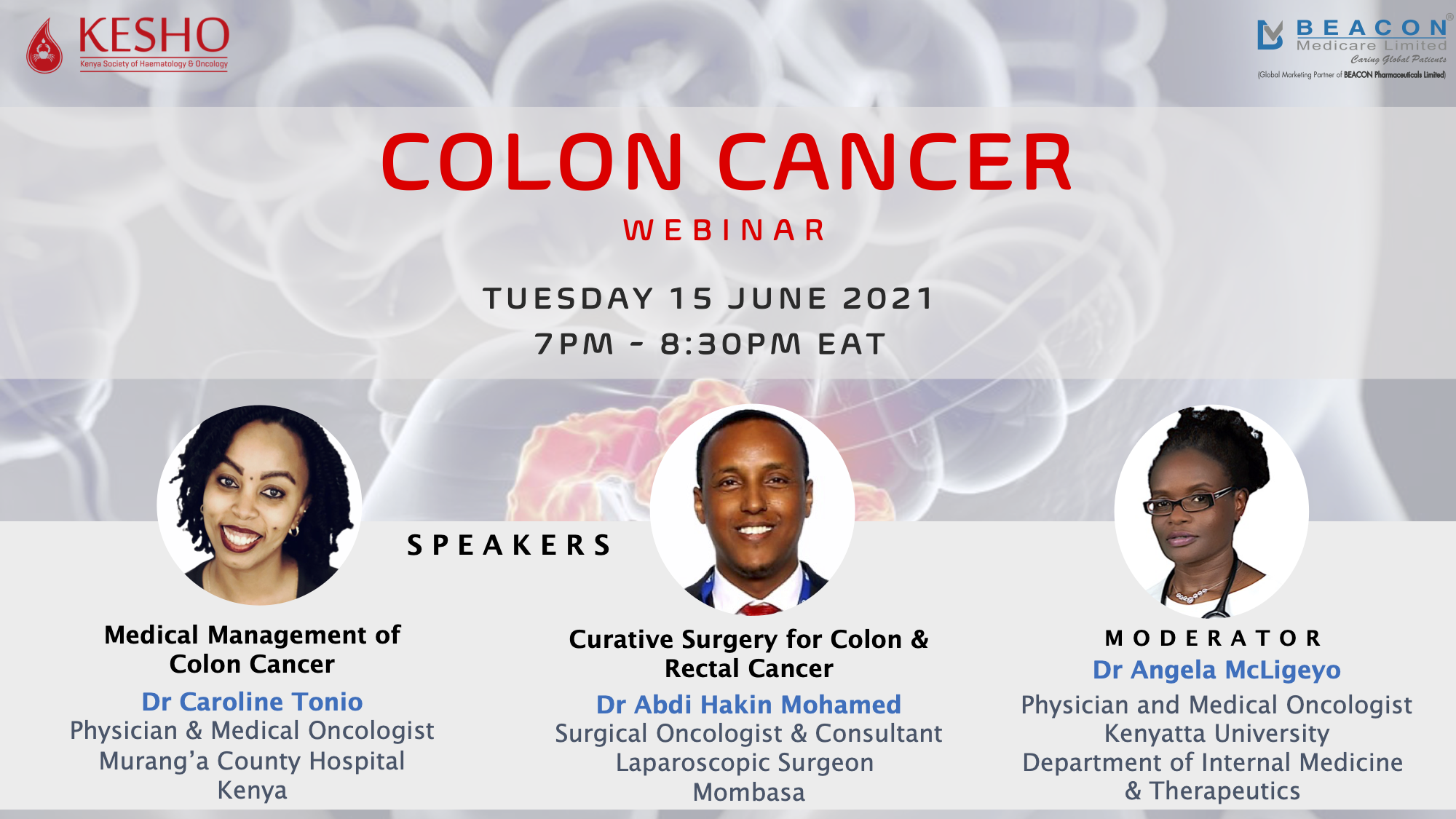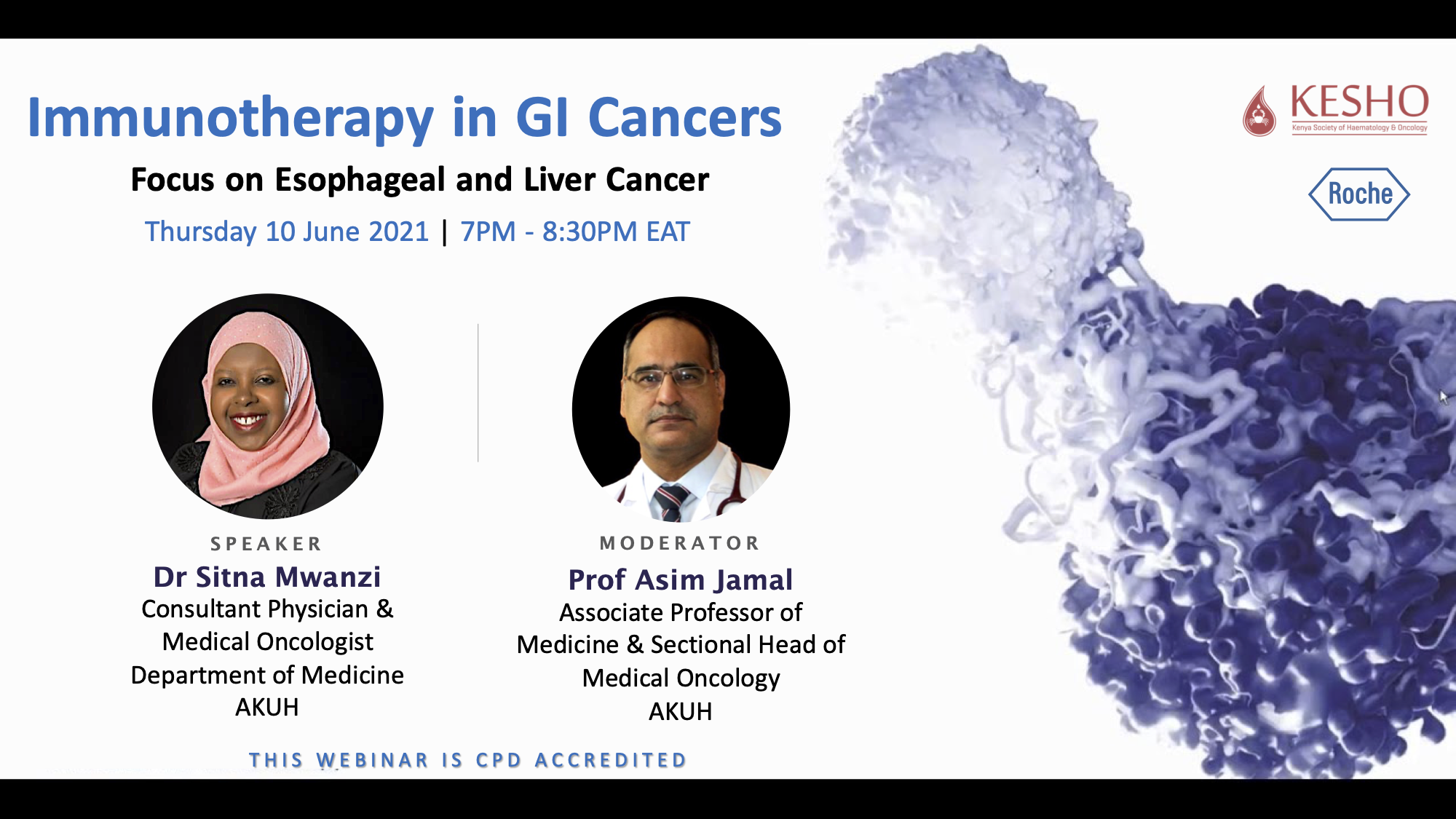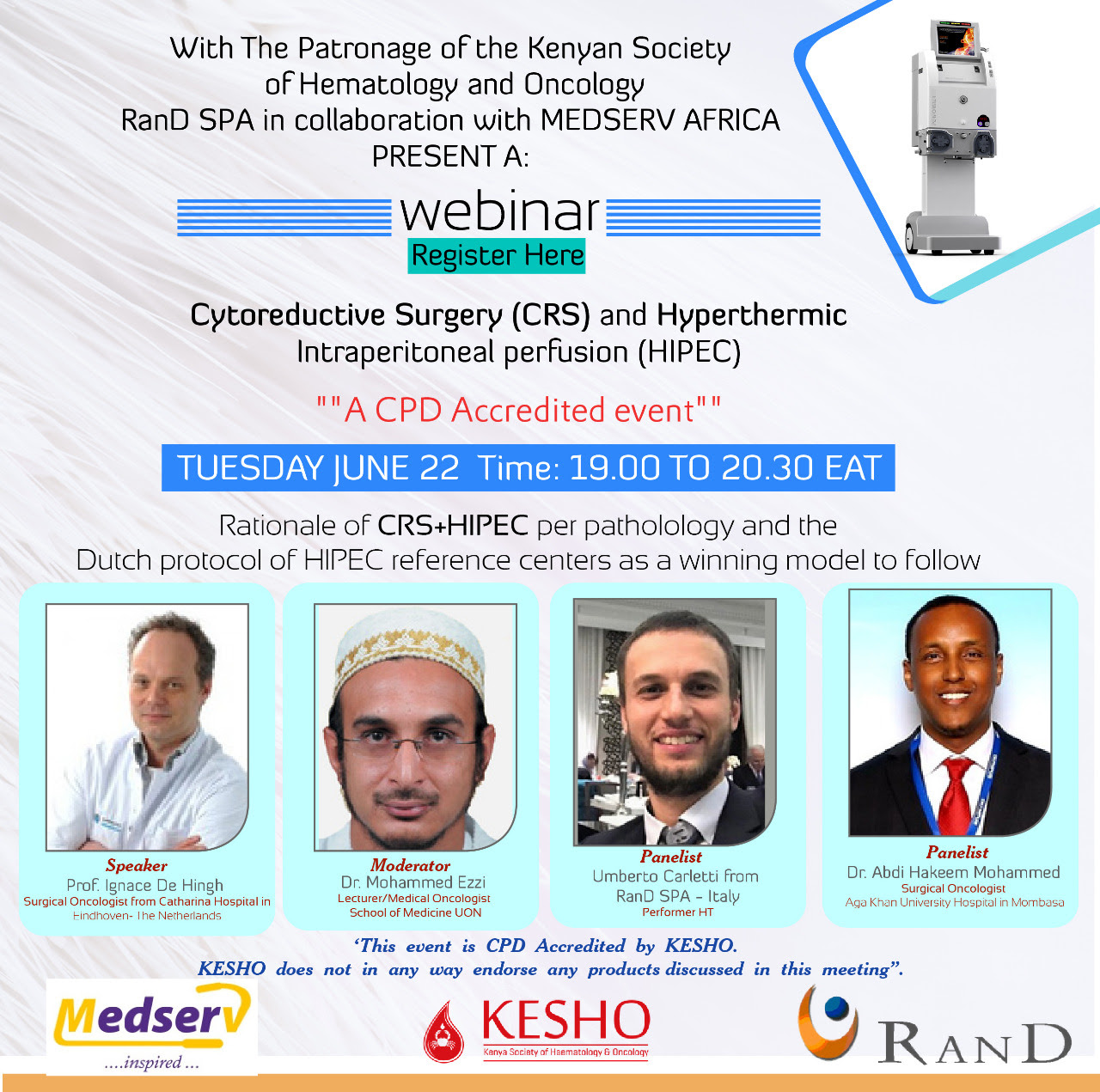
- This event has passed.
Colon Cancer
Event Navigation

Moderator: Dr. Angela McLigeyo, Physician and medical Oncologist, JOOTRH, Kenya
Sponsor: Beacon
Presenters:
- Dr. Caroline Tonio, Consultant Physician and Medical Oncologist, Muranga County Hospital, Kenya.
- Dr. Abdi Hakin Mohamed, Surgical Oncologist, and Consultant Laparoscopic Surgeon, Mombasa.
The incidence of colorectal cancer in Africa is increasing. In Kenya, it ranks position 5, with the majority of patients being young (age group 41-50 years). The disease is most common in the rectum, with a proximal anatomical distribution. The 5-year survival rate for localized cancer is 90% while for distant disease, it’s almost 15%. Kenya has a relatively lower incidence of colorectal cancer compared to western countries with the incidence being higher in men. The major risk factors include environmental, diet, familial syndromes, and inflammatory bile diseases. Mortality is associated with the male gender, presence of comorbidity, recurrence, disease stage, and receipt of chemotherapy. 8-29% of patients with colorectal cancer present with an emergency obstruction of the bowel at the time of diagnosis. Acute obstruction is associated with high morbidity and mortality. High-risk patients require regular screening. Due to late presentation, and lack of screening capacity, it’s difficult to detect early lesions. Consequently, most patients end up with abdominoperineal resection with a poor prognosis. Treatment recommendation for invasive colon cancer is dependent on the pathological stage of the disease and is mainly guided by specific Biomarkers. Curative intent surgery depends on the location of the tumor and involves removing the tumor-containing a segment of the bowel with adequate margins, by en bloc excision of the mesentery containing the feeding vessels and regional lymph nodes. Removal of as many lymph nodes as possible increases the patient’s survival. Complete mesocolic excision and 3D lymphadenectomy are associated with higher complication rates, but no differences in post-operational mortality. They have positive effects on 5 years of overall survival and three years of disease-free survival. Additionally, they are associated with decreased local and distant recurrences. Surveillance for stage I disease requires colonoscopy 1 year after surgery, while stage II and III of the disease require more than just colonoscopy. Stage IV is generally incurable except in a small subset of patients with oligometastases, where curative intent may be considered. Primary tumor sidedness has prognostic and predictive significance, where right-sided tumors seem to be associated with inferior outcomes. Such tumors are associated with age and methylation phenotypes. Surgery in rectal cancer is very complicated because oncologists have to determine the probability of maintaining or restoring bowel functions versus anal continence and preserving genitourinary functions. Consideration is made as to whether the intention is curative or palliative. The risk of pelvic recurrence is higher in patients with rectal cancer compared to those with colon cancer, where locally recurrent rectal cancer is associated with a poor prognosis. Enhanced Recovery After Surgery (ERAS), involves multimodal perioperative pathways, which have successfully reduced in-hospital stay, medical complications, and costs. Laparoscopy is a minimally invasive procedure with better postoperative outcomes including reduced rates of surgical site infections, incisional hernias, and small bowel obstructions than ERAS. The ultimate goal of oncological surgery is an in toto resection of the primary tumor together with its entire lymphatic drainage territory to achieve low locoregional recurrence rates with long overall and disease-free survival rates. Adjuvant treatment declines with age. Currently, neoadjuvant therapy is under consideration with very promising results. Although there is the availability of molecular testing, high cost remains a major barrier for the patients to access the services.
Webinar Recording

